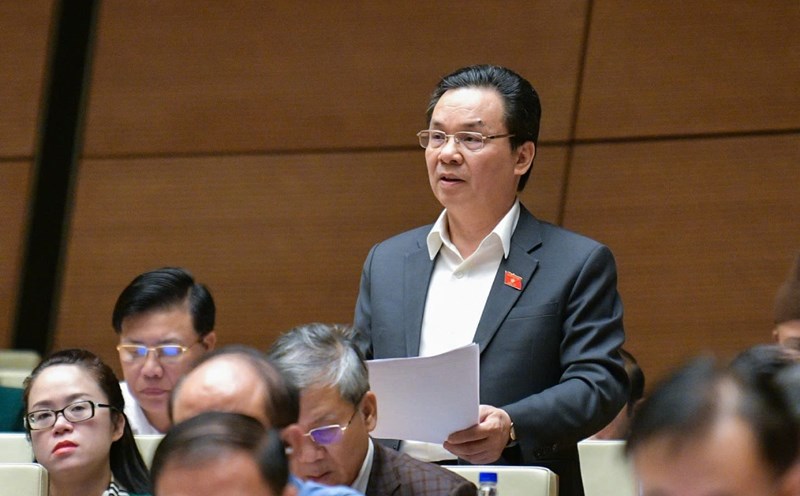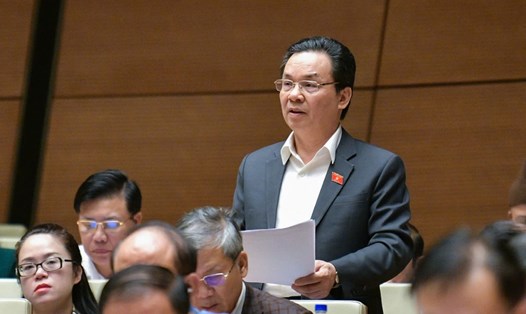Yesterday (November 6), when the National Assembly discussed in the hall about the budget and public investment, delegate Hoang Van Cuong (National Assembly Delegation of Hanoi) told the story that after the hospital in Phu Tho became autonomous, patients not only paid for medical examination and treatment services but also paid bank interest on loans the hospital borrowed for investment. And he said, "this is absurd".
In fact, it is very common for people to have to bear additional bank interest for investors, of course, when buying goods or using services.
However, in the medical environment, it is truly absurd that patients, who are already suffering, now have to bear bank interest on hospital bills.
Because of the mission and social responsibility of the medical industry, in addition to saving lives, it must also ensure fairness in medical examination and treatment.
Patients having to pay bank interest is one of the downsides of hospital autonomy. And this downside of autonomy has also been seen in higher education in recent times, with schools continuously requesting to increase tuition fees to have more revenue.
And while it has not increased, it is forced to expand the training scale with low benchmark scores to support itself with tuition revenue.
Autonomy in healthcare and higher education is one of the policies of the Party and State to innovate the management mechanism suitable to the context of market economy development in order to gradually reform public finance methods towards promoting autonomy, effective use of the state budget, and promoting all capabilities of public service units in providing high-quality public services.
However, many hospitals across the country are falling into debt after a period of being granted financial autonomy.
There are many reasons and in fact, leaders of hospitals and universities have long complained and made many recommendations on forums, including the fact that, as delegate Hoang Van Cuong said, "investment in education to develop intelligence and investment in health to develop vitality seem to be very obscure in public investment data".
The lack of clarity is reflected in the numbers: In 2024, of the total capital of 120 trillion VND, the Ministry of Health will be allocated about 1.2 trillion VND, accounting for 1%; the Ministry of Education and Training will be allocated 1.5 trillion VND, accounting for 1.2%. In 2025, the total budget will be 148 trillion VND, the Ministry of Health will receive 5.7 trillion VND, accounting for 3.7%; the Ministry of Education and Training will receive 2.9 trillion VND, accounting for 1.9%.
Investing in health and education is investing in development and the future. But if the current “obscurity” in numbers is not improved soon, the two factors of “development” and “future” will become an unnecessary service burden on the people’s shoulders!











